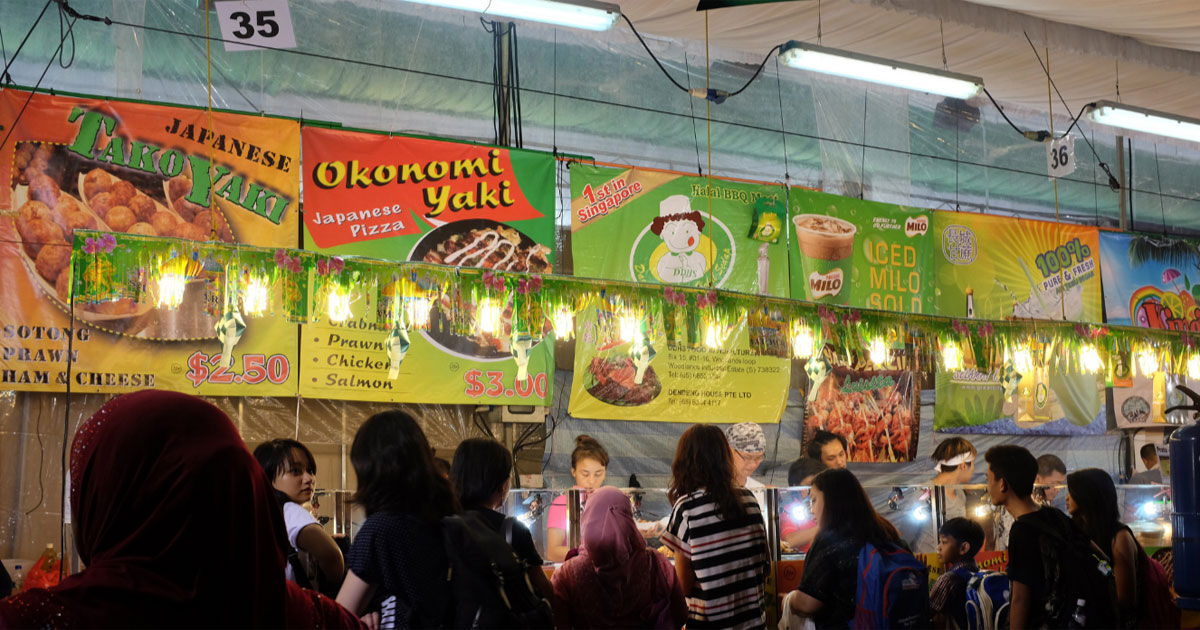The 2019 Geylang Serai Ramadan bazaar will be held from May 3 to June 5.
Measures to make sure bazaar Malay enough
To ensure costs do not go overboard and the traditional feel of the event is maintained this year, some measures are being implemented.
This was after taking into account feedback from the ground, where the sentiment has been that the bazaar has deviated too much from the past and it was not nostalgic enough the past few years.
More old school
Organisers of the Geylang Serai Ramadan bazaar made known to the media on Thursday, March 28 the measures implemented.
South East District Maliki Osman said: “The feedback we have been getting is that (visitors) want that nostalgic feeling... It’s something that we are responding to and if what comes back is something that people like, that’s something we want moving forward.”
Maliki is also Senior Minister of State for Defence and Foreign Affairs.
S$14,000 rental cap
Rentals are capped at S$14,000 for the 2019 bazaar.
This was after complaints in previous years.
Vendors in 2018 paid up to S$20,000, while those in 2017 paid up to S$15,000.
The reduced cost will hopefully translate to cheaper prices.
The 2019 Geylang Serai Bazaar will have about 500 stalls.
This will be fewer than in 2018.
But it will allow more space between stalls, a larger dining space and wider walkways for crowds.
In 2018, the Geylang Serai Bazaar saw 1.86 million visitors, of which 76 percent were locals.
Ratio of Malay vs non-Malay items
Main coordinator Wisma Geylang Serai said 60 percent of food stalls must sell traditional Malay food.
The remaining 40 percent may offer "contemporary" or "hipster" options.
Non-edible items must be majority Malay
Some 80 percent of non-food stalls will sell goods associated with the festive season, while 20 percent will offer other lifestyle items.
This is to ensure most of the stalls in this year's edition will sell traditional goods related to Hari Raya and the Malay culture.
Food suitable for Muslim visitors
All food sold at the upcoming bazaar must be suitable for Muslim visitors.
The stalls have to be Muslim-owned, certified halal by the Islamic Religious Council of Singapore (MUIS) or fulfil a halal criteria set by consultants engaged by the bazaar organisers.
Owners are responsible for ensuring that the products are halal.
Halal consultants will have the credentials to say the stalls meet the requirements, and they will work with smaller food stalls to ensure compliance.
The consultants will also conduct frequent checks on the stalls to ensure that they continue to comply with the halal requirements for the duration of the bazaar.
More organised
The bazaar this year will also have a “more coordinated approach”.
This will see stalls selling related products grouped in the same location.
One emphasis of the event is to continue providing opportunities for young entrepreneurs.
This year's bazaar will be the first one fully coordinated by Wisma Geylang Serai, a Malay-Muslim social and cultural heritage hub.
It has been awarded to two operators – Orange Travel and Enniche Global Trading.
Last year's edition was jointly coordinated by Wisma Geylang Serai together with the Kembangan–Chai Chee and Geylang Serai grassroots organisations.
The Geylang Serai Bazaar is organised annually in conjunction with the Muslim holy month of Ramadan.
Top photo via Jnzl's Photos Flickr
If you like what you read, follow us on Facebook, Instagram, Twitter and Telegram to get the latest updates.
